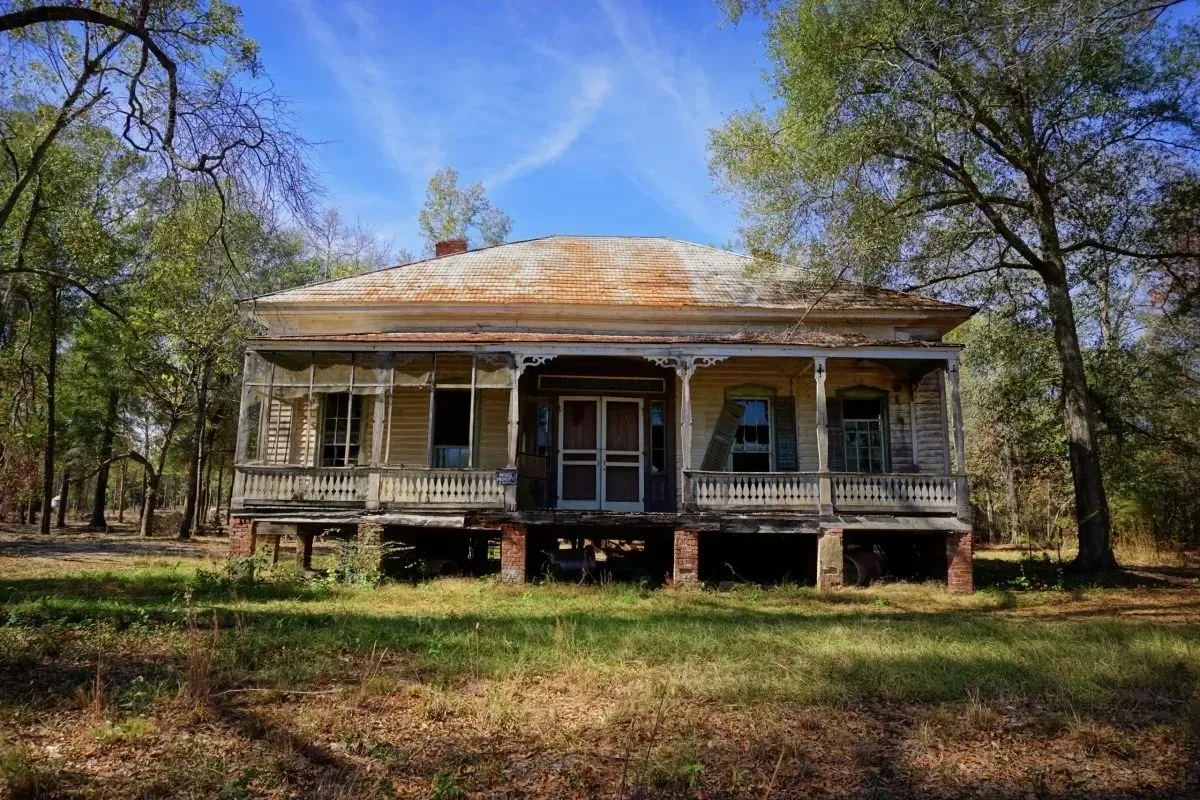It’s fascinating to learn about the history of the McLendon Family and their homestead. The construction of their house during the 1860s, amidst the backdrop of impending Civil War, speaks to the resilience and determination of the people of that era. The arrangement with tenant farmers reflects the prevalent agricultural practices of the time and the interconnectedness of community life.
Walking through the front door into the hallway with its tall ceilings must feel like stepping back in time. The use of wide, smooth boards on the walls not only adds to the aesthetic appeal but also serves a practical purpose in keeping the interior cool, highlighting the ingenuity of traditional architectural design.
The expansion of the house in the early 1900s speaks to the changing needs of the McLendon Family and their evolving lifestyle. The addition of rooms and a separate kitchen demonstrates their commitment to accommodating a growing family and adapting to modern conveniences while maintaining the integrity of the original structure.
It’s remarkable to think about the bustling activity that once filled this homestead, with numerous families living and working on the land. The McLendon House stands as a testament to the enduring legacy of those who called it home and the rich tapestry of history woven into its walls.


The presence of a farm store next to the house adds another layer of insight into the daily lives of the tenant farmers who worked on the McLendon Farm. The exchange of payment coupons for goods highlights the interdependence between the farm and its workers, as well as the farm’s role as a central hub for community interaction and commerce.
The detailed records kept by the farm provide valuable historical documentation, offering a glimpse into the challenges and triumphs experienced by those who toiled on the land. These records serve as a testament to the resilience and resourcefulness of the farm’s inhabitants, painting a vivid picture of rural life in that era.
The decline of the farm workforce and the challenges faced by C.H. Mclendon underscore the broader shifts occurring in agriculture during the mid-20th century. The exodus of workers to urban areas and the changing economic landscape posed significant obstacles to the sustainability of traditional farming practices.
C.H. Mclendon’s recognition of the need to adapt farming methods reflects a forward-thinking mindset and a commitment to preserving the farm’s legacy in the face of adversity. His passing marked the end of an era for the McLendon Farm, symbolizing the culmination of decades of hard work and dedication.
The transition of the farm into a hunting camp in the 1980s speaks to the evolving uses of rural land and the enduring appeal of outdoor recreation. However, the eventual abandonment of the farm underscores the challenges of maintaining historic properties in the absence of ongoing stewardship and investment.


Forgotten South wrote: “Back in November 2016, when I stopped by, the current owner was there. He was pretty occupied fixing up the place, wanting to make it a nice spot for his family and buddies. He kindly let us wander around the house as we pleased, and it was really something special. I’ve always wished I could come back someday and see it all fixed up like it used to be.
But, I’ve heard from folks around here that by 2022, not much has changed with the house. I bet renovating such an old place costs a fortune. Unless someone with both deep pockets and a real passion for preserving history.








Photography by Forgotten South

